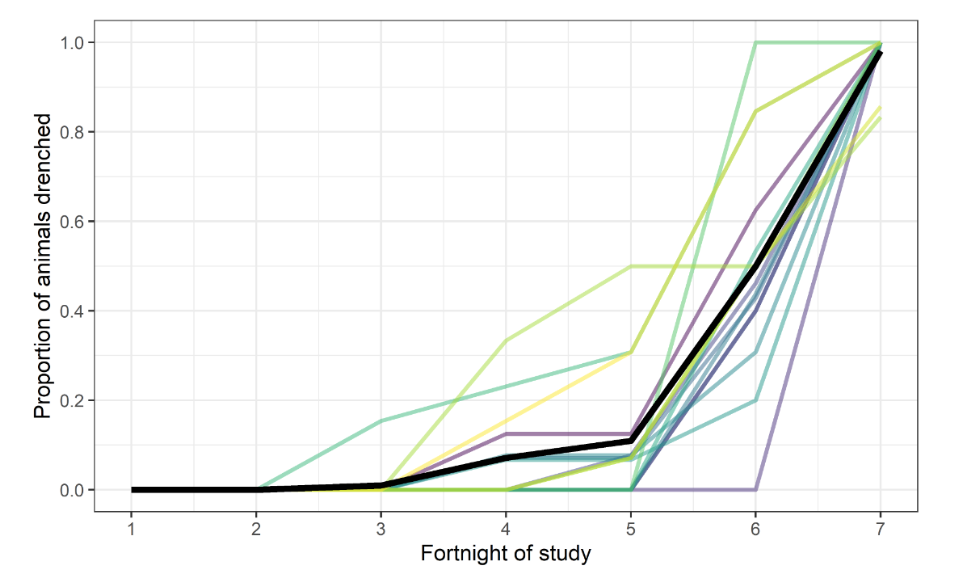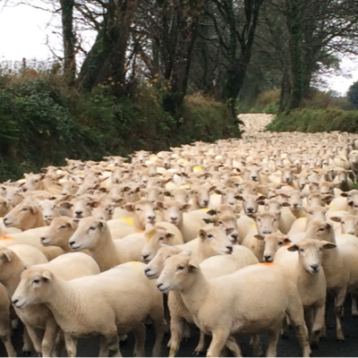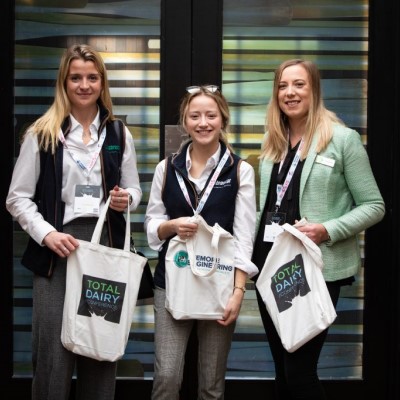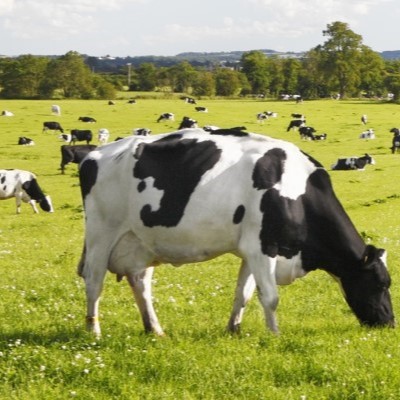CIEL | Project: Worm tolerance
Genetics | Reproduction | Behaviour | Nutrition | Health & Welfare | Productivity | Food Integrity | Environmental Impact
Animals vary enormously in their resistance to infection, and in how infection affects their performance. CIEL is part of a collaboration led by Matt and Pip Smith of Trefranck Farm in Cornwall looking to demonstrate worm tolerance sheep and explore how some sheep can carry internal parasites but still perform well.
Unlike ‘worm resistance’, where animals mount a strong immune response, ‘worm tolerance’ is best described as ‘ignoring’ the parasite load or limiting its impact on animal performance. Thus, tolerant animals continue to grow well, despite a high worm burden.
Having sourced genetics from New Zealand flocks selected for worm tolerance for over 20 years, Matt Smith argues this is a better way forward for the UK sheep industry.
The project, titled “Breeding for tolerance to worms for the future of sheep farming in England”, has been awarded funding through Defra’s Farming Innovation Programme, managed by Innovate UK. It aims to tackle the problem of parasitic gastroenteritis (gut worms) in sheep to help farmers to both farm more efficiently and reduce environmental impact.
Why is this important?
Anthelmintic resistance is a growing problem. This project is seeking to identify and exploit genetic variation. By breeding from rams with genetic tolerance to worms, farms could benefit by introducing worm tolerant genetics into their flock. Breeding worm tolerant sheep should lead to improved growth rates and financial returns while reducing anthelmintic use. This approach will reduce the need for drenching, and therefore reduce associated labour costs and improve sheep welfare and production.
“We are looking at production traits which are going to help a farmer survive a rise in worms on their farm, which they’d struggle to control with anthelmintics” Tim Bebbington, Castle Veterinary Group
Project scope
This pilot study will complete benchmark comparison testing between two groups of lambs ‘with’ and ‘without’ use of wormers. It will monitor their growth rates and their health and welfare to identify if some animals can maintain growth rate and health at an economic rate without use of wormer.
Trials will help define the system needed to breed rams with genetic tolerance to worms, which can be sold to commercial farms wanting such genetics.
Sharing the research findings is crucial to help the sector move forward. Throughout this study, the team will be publishing updates and holding events.
Alongside informing farmers practically, this study will increase evidence-based knowledge for vets, researchers and farmers. This approach to using genetics could potentially be replicated in many ram breeding flocks and once proven should be encouraged, to promote the use of productive, high welfare sheep genetics.
Trial outline
“As sheep breeders, we are well aware of the challenges being faced on farm. With this first trial, we hope to identify sheep that are more tolerant to worms, to inform our breeding programmes, helping to reduce the sheep industry’s reliance on wormers and still remain profitable without compromising welfare.” Matt & Pip Smith, Trefranck Farm
All animals in both the control and trial groups had repeated dung samples taken to allow the worm burden to be monitored via faecal egg counts throughout the project.
A control group of 20 lambs are wormed every 4 weeks to act as a ‘control’ by which to benchmark the growth rate of a larger group of trial lambs.
Individual lambs in the trial group will only be drenched with a wormer during the study if their growth rate drops below 70% of the control group. To test and identify tolerance or resistance to worm infection, approximately 200 ram lambs from Trefranck Farm will be weighed and have dung samples taken for faecal egg counting every 2 weeks from July to November 2022.
Crucially, welfare will be constantly assessed as measured by performance and observation. The time that trial group lambs get drenched will be taken into account when performing subsequent statistical analysis. By the end of the study, those lambs that tolerated a gastrointestinal worm burden by maintaining adequate growth rates without being wormed will be classed as the most tolerant.
Results will be analysed by scientists at the Moredun Institute and disseminated to industry by CIEL.
The preliminary study aims to demonstrate that variation in worm tolerance exists in UK sheep. Subsequently, the plan is to identify the most efficient system for breeding genetically superior, worm tolerant sheep and a strategy for getting these out across industry quickly and widely.
Farm facts
Farm: Trefranck Farm in Cornwall
Livestock: 800 breeding ewes.
Genetics: Worm tolerant Romney rams from New Zealand have been imported to test the impact on lamb progeny when challenged by internal parasites under UK conditions.
Project team
- Matt and Pip Smith, Trefranck Farm – Matt and Pippa have been farming sheep at Trefranck for several years, and currently run a flock of 800 ewes. Matt is passionate about bringing an efficient, sustainable grass-based sheep farming system to the UK.
- Moredun Research Institute – World-class scientific research institute focussed on improving animal health & welfare through the prevention and control of infectious diseases of livestock.
- Castle Veterinary Group – Based in Cornwall, Castle Veterinary Group are experts in sheep veterinary health and research.
- CIEL – The UK Agri-Tech Centre for livestock innovation and a leading membership organisation, uniquely positioned at the heart of a collaborative network of expertise linking industry, academia and government.
Impact
The sheep industry could ultimately benefit from lower input & labour costs associated with managing worm infections. Proving the effectiveness of breeding for worm tolerance will also reduce animal stress and environmental impacts associated with worming.
*** Project Update April 2023 ***
Upcoming Awareness Days 16 and 17 May
These upcoming events at Trefranck Farm are an opportunity to discuss the results of the study and invite feedback to understand if the new approach is of interest. The first awareness day on 16 May will be tailored for industry professionals, followed by a farmer-focussed event on 17 May.
Each day will feature discussion stations with vets, farmers, researchers and practical demonstrations. A complimentary lamb roast and other refreshments are provided. Tickets are free and available on a first-come-first-served basis. Participants are invited to make a voluntary donation for the Farming Community Network.
*** Project Update December 2022 ***
Preliminary results
The project team have recently completed data collection. Preliminary results suggest that there is a genetic basis to the ability of sheep to continue to grow well in the presence of worms. The below graph shows the proportion of animals that had received at least one drench across time. Each coloured line represents a sire line, with the thicker black line showing the mob as a whole (excluding the control animals). In fortnights 4, 5 and 6 differences emerge between lines, with some families being drenched before others.

At this stage, it is unclear whether these variations are due to tolerance i.e., the animals that are performing well without drenching are coping with a worm burden, or due to resistance, where the sheep that are performing well without drenching have repelled the worms. The case may be that it is a combination of the two. Further analysis of the faecal egg counts taken at each sampling session is needed to better understand this, but the results are promising.
By the seventh fortnight most animals have been drenched. The project team’s initial thoughts are that this is due to an unprecedented year, with warm, damp conditions continuing well into November, perfect for worm growth. Further analysis will be released in the coming months as the project progresses.
For more information, please contact Dr Mark Young, CIEL Head of Innovation, [email protected].

Meet the project team
Dr Adam Hayward
Tim Bebbington
Matt Smith
Tim Bebbington
Pippa Smith
Lucy Giles







